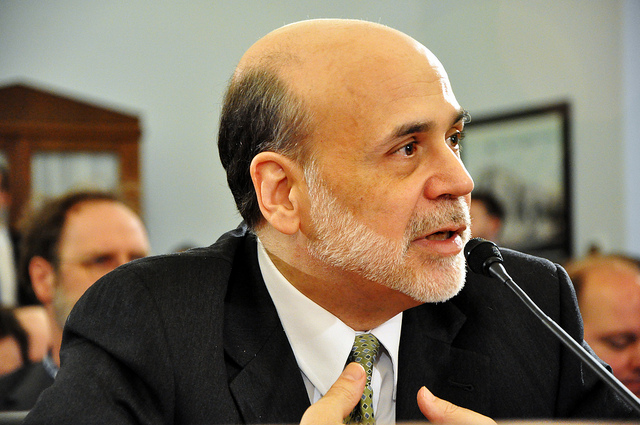
Federal Reserve Board writes to Congress
In a letter to Congress, the Federal Reserve Board, led by Chairman Ben Bernanke recommended a variety of steps the lawmakers could take to help housing recover, most notably, noting that Fannie Mae and Freddie Mac could serve to aide the recovery of housing by providing less expensive mortgages to a broader pool of homeowners. Strong political opposition is expected immediately, especially in light of the paper being addressed to leaders like Barney Frank, Ranking Member of the House Committee on Financial Services who two years ago proposed abolishing Fannie and Freddie.
The timing of the recommendation has raised eyebrows as a growing number of politicians on both sides of the aisle are pushing to entirely shut down the two organizations after being seized by the government in 2008 to save them from failing. Recently, Fannie Mae posted losses of $5.1 billion last quarter and requested $7.8 billion more in taxpayer support from the Treasury Department whileFreddie Mac posted losses of $4.4 billion last quarter and requested $6 billion more, which most leaders say is unacceptable.
Goals of the recommendations
All of the Fed’s recommendations aim to make lending loosen up to a reasonable level and reduce the inventory of vacant homes. The Fed wrote, “Looking forward, continued weakness in the housing market poses a significant barrier to a more vigorous economic recovery. Of course, some of the weakness is related to poor labor market conditions, which will take time to be resolved.”
Repeating Obama’s 2011 proposal, the Fed said bank-owned properties should be come rentals and also recommended allowing Fannie and Freddie to refinance loans they have not guaranteed which could allow an additional 1 million to 2.5 million borrowers to refinance through the Home Affordable Refinance Program which President Obama revitalized via an executive order despite the failure of the first phase of the program. The Fed also proposed that Fannie and Freddie handle default differently, a proposal that could go into effect without requiring Congressional approval.
“It is particularly telling that the white paper calls for regulators to evaluate their options on a more macro level rather than simply base evaluations on short term gains or losses,” Senate Banking Committee Chairman Tim Johnson said in a statement, according to Reuters.
White paper from the Fed:
Tara Steele is the News Director at The American Genius, covering entrepreneur, real estate, technology news and everything in between. If you'd like to reach Tara with a question, comment, press release or hot news tip, simply click the link below.













































Roland Estrada
January 5, 2012 at 12:38 am
How convenient for them to say that. And in an election year no less. What a bunch of DBs!!
Brad Officer - Jacksonville REALTOR
January 5, 2012 at 7:54 am
Wow. The white paper is spot on with current conditions and raises all the issues that we in the field debate daily. I'm one never for any government intervention, but with short sales it seems to be 9 out 10 times I'm dealing with the gov as the investor.
The problem is rarely with finding a legitimate buyer with financing for all the properties, the problem is getting the bank or servicer, MI, and the investor to agree to taking the short sales.
Roland Estrada
January 6, 2012 at 2:04 am
I’ve had a couple of days to stew about this. Every time this issue comes up I have to go back and review that the problem starts and ends in Washington. The banks are to blame to the extent that they were allowed to go to extremes in their financial dealings. And, I’ll say I'm not a big fan of the banking and financial services sector.
I made a comment in a previous post that Ronald Reagan once said – The scariest thing a citizen can here is “ We’re the government and we’re here to help.” Another apt saying is – the road to hell is paved with good intentions. Our government, in a grandiose moment of political pandering, declared that home ownership needed to go up.
The problem is that it didn’t happen organically. It was cobbled together in a way that created a monster even Doctor Frankenstein couldn’t conjure up. Then we were told the banks are to big to fail. Not true. For the last few years we have been led to believe the housing market is to big to fail in one fell swoop. So for the last few years the housing market has been in some bizarre “Weekend At Bernie’s” state of being – dead and very few people willing to bury it and start over.
Now, back to the banks. The problem with the bailout is that the feds should have had some really heavy-handed but temporary conditions. The banks were shored up but nothing was done to insure that the investors behind the loans would be made to knuckle under and make real and quick advances on loan modifications and short sales.
And so her we stand, pitifully grateful as we stand in line for our “Government Cheese”.